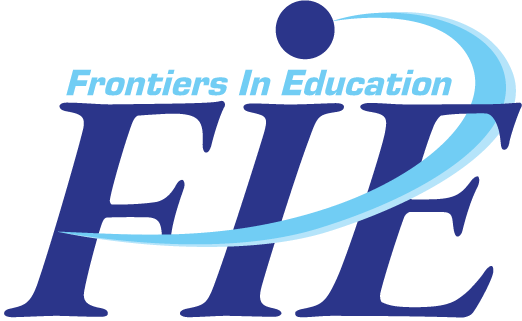Thursday, October 13
|
10 am – Noon JMP Academic Programs Convention Center Room 130A |
Topic: Engineering analytics: What today's engineer needs to know about modern statistical methods and analytics.
Description: The modern technological era is defined, in part, by the volumes of data produced daily. Engineering analytics involves using data to guide decision-making and strategy, helping dimension “the problem” and the business value of potential solutions, long before time and money are spent “fixing” the problem. The emerging new role for engineers must include a literacy and even a mastery of analytics, starting with data and statistics even before first principles are studied.
We will present an analytics roadmap, and discuss core concepts and techniques in the engineering analytics toolbox. We will use a case study to illustrate tools for data preparation and demonstrate interactive visualization techniques using JMP Pro, a desktop statistical software from SAS. Then, we will present core modeling techniques, including model validation, logistic regression, classification trees, neural networks, and three penalized regression techniques: Lasso, Elastic Net, and Ridge Regression. Finally, we will introduce tools for simulating model results and dynamically exploring “what if” scenarios.
|
1:30 – 3 pm zyBooks Convention Center Room 130A |
Topic: Interactive Tools to Engage and Retain Engineering Students - "Introduction to MATLAB" and "Circuits" zyBooks.
Description: Come enjoy a tour of the premier web-native, interactive learning tool that will grab your students' attention while guiding them through the learning process. zyBooks combine theory and practice into a cohesive whole that can live right inside your LMS and provide you with invaluable insight into your students' understanding of the subject matter via detailed analytics. Fellow professors successfully using these tools in the classroom, and online, will be present to share their experiences with you also.
|
3:30 – 5 pm ARM Convention Center Room 130A |
Topic: Introducing Engineering by Developing Smart Devices
Description: This workshop introduces a range of opportunities to integrate smart devices into engineering learning experiences. More and more students are entering undergraduate engineering with backgrounds in computing and microcontroller design. The increase in Maker spaces, robotic design competitions, and low cost microcontroller systems make it possible to engage your learners in engineering thinking and design earlier than ever before. This background increases the potential for educators of undergraduate engineering to advance the kinds of design experiences their students receive and adapt to the technology-rich profession they are joining. Participants of this workshop will receive a sample student kit and instruction on how to get started using the microcontroller technology used in robotics, IoT, mobile technologies, and other smart devices. They will also explore various instructional methods for using this technology in a design-based learning course. This learning experience should increase participants’ ability to evaluate key considerations in designing a course that blends digital technologies into engineering education.
Friday, October 14
|
10 am – Noon Mathworks Convention Center Room 130A |
Topic: Integrating low-cost hardware with MATLAB and Simulink
Description: Project-based Learning is a teaching method used to demonstrate theoretical principles while working through real-world problems and solutions. Access to low-cost hardware (Arduino, Raspberry Pi, etc.) and smartphone platforms offer faculty options for teaching through hands-on experience.
This hands-on showcase will introduce attendees to the use of MATLAB and Simulink in classroom education. Some familiarity with MATLAB and Simulink would be helpful but not essential. Participants will learn the workflow for developing and deploying algorithms to low-cost hardware.
At the end of this showcase, attendees will be able to:
- design, simulate and test custom algorithms in MATLAB and Simulink
- implement these algorithms on low-cost embedded hardware without writing any C-code
- learn about the built-in support for other low-cost hardware platforms
- explore the benefits of this workflow for course and capstone design projects
|
1:30 – 3 pm NVIDIA Convention Center Room 130A |
Title: Teach Robotics with the 'Jet' Teaching Kit for Educators
Description: As performance and functionality requirements of interdisciplinary robotics applications rise, industry demand for new graduates familiar with GPU-accelerated computer vision, machine learning and other robotics concepts grows. We'll introduce you to a comprehensive set of academic labs and university teaching material targeted at 'Jet', the new NVIDIA Jetson-based low-cost, smart, autonomous, educational robot for use in introductory and advanced interdisciplinary robotics courses. The teaching materials start with the basics and focus on programming 'Jet', and move on to advanced topics such as computer vision, machine learning, robot localization and controls.
By attending this session, you'll also learn:
- How NVIDIA collaborates with academia to address the global challenges of teaching new technologies in the classroom
- Availability of free interdisciplinary robotics teaching material, platforms, and academic resources
- Best practices for incorporating 'Jet' into higher-ed robotics courses from real-world academics
Speakers:
John Seng, Professor, Cal Poly State University, San Luis Obispo
John Seng is a professor in the Computer Science department at Cal Poly State University, San Luis Obispo. He is also part of the Cal Poly Computer Engineering Program.
Joe Bungo, GPU Educators Program Manager, NVIDIA
Joe Bungo is the GPU Educators Program Manager at NVIDIA where he enables the use of GPU technologies in universities, including curriculum and teaching material development, facilitation of academic ecosystems, and hands-on instructor workshops. Previously, he managed university programs at ARM Inc. and worked as an applications engineer. Joe received his degree in Computer Science from the University of Texas at Austin.

